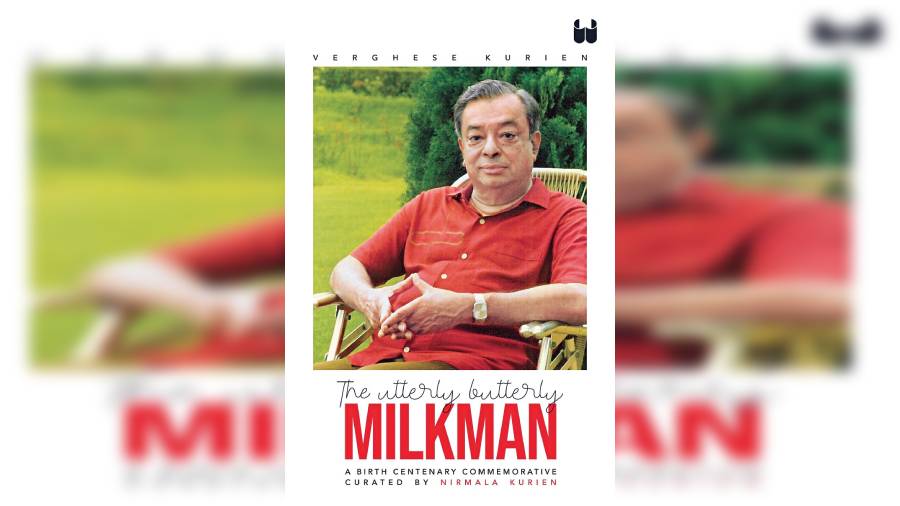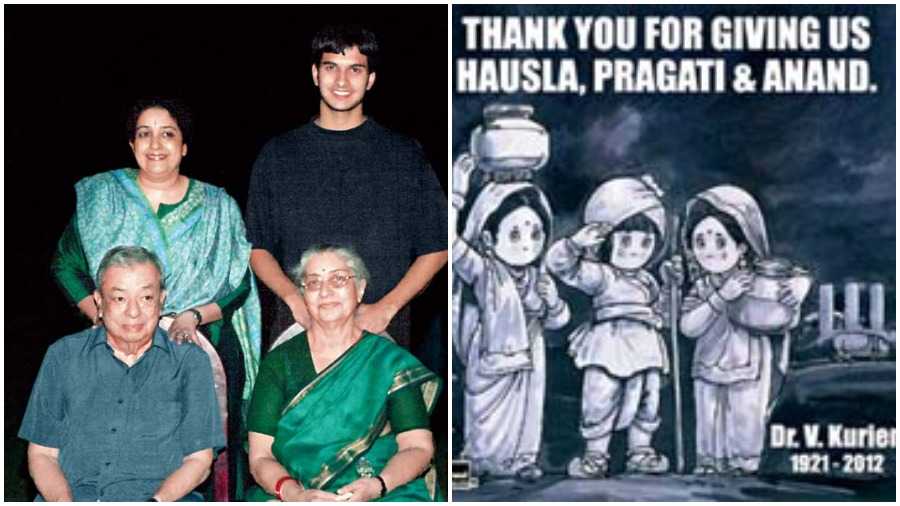To mark the birth centenary year of Verghese Kurien, the father of White Revolution in India, his daughter Nirmala Kurien has curated a book The Utterly Butterly Milkman (Westland; Rs 699). The man who was on the board of National Dairy Development Board and fought for farmers to form a cooperative to sell milk, his actions empowered millions and led to India becoming one of the largest producers of milk in the world. “He had the option of creating an empire for himself and becoming one of the most affluent men in India, making it to the Forbes’ list of 100 richest men in the world if he wanted to. Instead, he firmly believed that ‘to whom much has been given, much will be required; and from him who has been entrusted with much, even more will be demanded’,” writes Nirmala Kurien on her father. These lines help sum up the magnanimous life guided by solid principles that was lived by Kurien.
Collecting essays from those who worked closely with the Padma Vibhushan awardee, Nirmala Kurien has traced the journey of Verghese’s modest life with ambitious dreams. The young Gujarati boy who left his job at TISCO to study dairy farming and milk production at the Michigan State University in the US, with a scholarship from the government of India. Deeply influenced by Maniben Patel, daughter of Sardar Patel, he studied their cooperative model and took it around the country, increasing milk output by four-fold in 30 years. Leading ‘Operation Flood’, he empowered the rural sector with milk, generating one-third of rural income in the country. However, his role was never limited to being the general manager of a dairy. “He was in the business of developing people and milk was only a tool,” Nirmala believes.
The book is exemplary in its approach as it helps throw light upon a side of a very private man who made his life about his work. With anecdotes from colleagues, one can see glimpses of a true leader who led by example. A firm feminist who also openly admitted to being a staunch atheist, he made no distinction between caste, religion and gender. He believed in empowering women knowing that a woman earning meant that she would spend the money on the betterment of her family by providing education and healthy food. Thus, he arranged for the training of women farmers who’d be taken to factories to learn how to better tend to their cattle and manage their business.

With essays and recollections from D.V. Ghanekar, managing director of Kolhapur Milk Producers Union to his nieces Anita and Elen to whom he was ‘Jolly Apaccha’, this book is a wonderful tribute to a man who fought bureaucracy at multiple levels to protect the rights of the farmers. A small part of the book also speaks of his work with Amul on whose board he served for many years. Recounted by Sylvester daCunha who was the manager at the agency entrusted with Amul butter’s advertising campaign, what emerges is the story of an exceptional client who wouldn’t stop defending you if you were in the right. It was this independence that allowed Amul butter to create its ‘utterly Butterly’ campaign that took topical advertising to a whole new level in this country. His ideas have penetrated geographical borders and helped empower countries through his business ideas and cooperative model of business.
The book ends on a gentle note replaying Nobel laureate Abhijit Vinayak Banerjee’s essay on Verghese Kurien, lamenting how media needs to remember the revolutionary for his ideas which changed scales more than Steve Jobs perhaps could for Apple. The Utterly Butterly Milkman could be a book on business or ethics. It could also be a book on humour or history or politics. That one can learn so much from observing the pioneering ways of a trailblazer, is definitely evident from this book.
